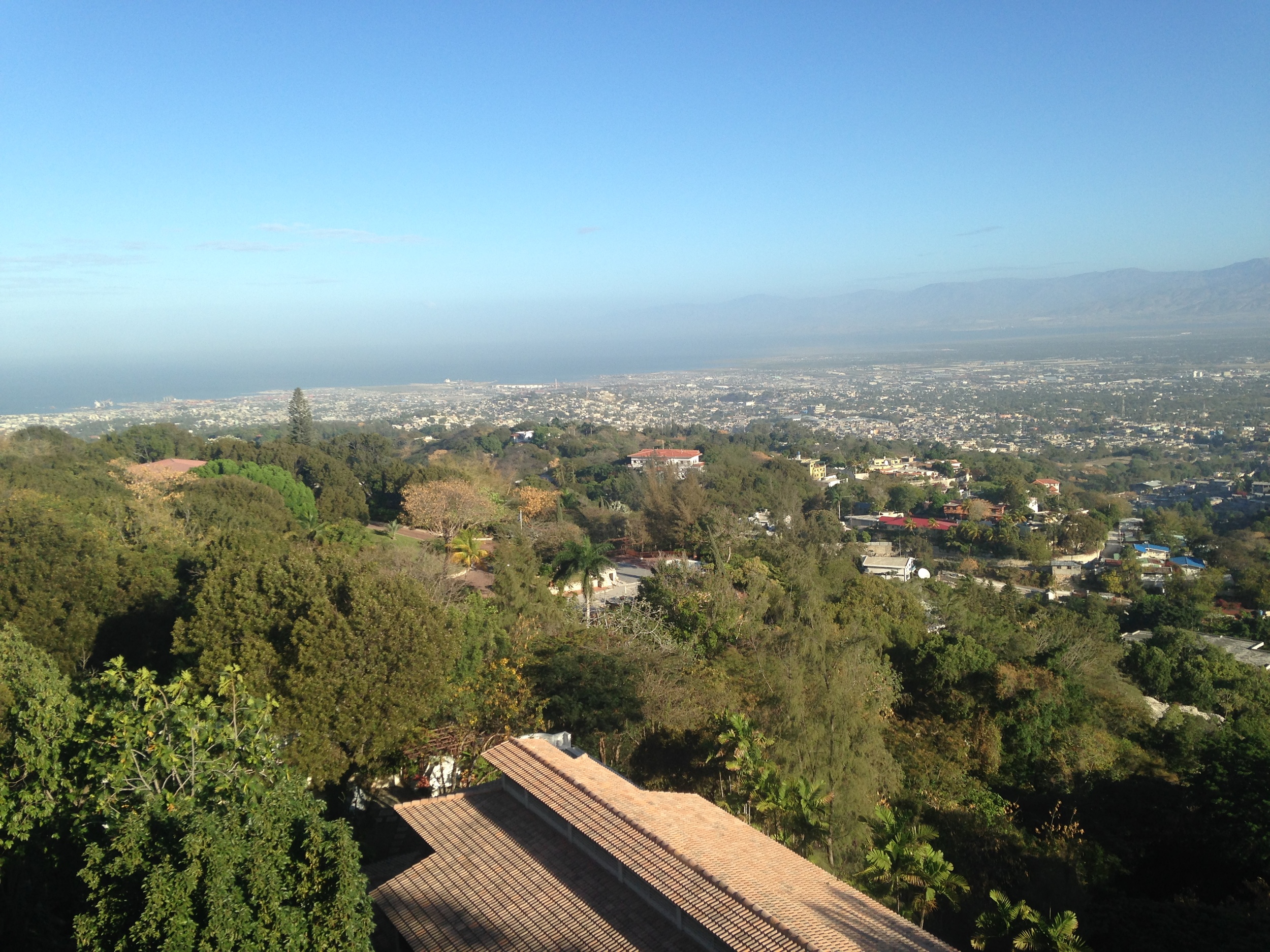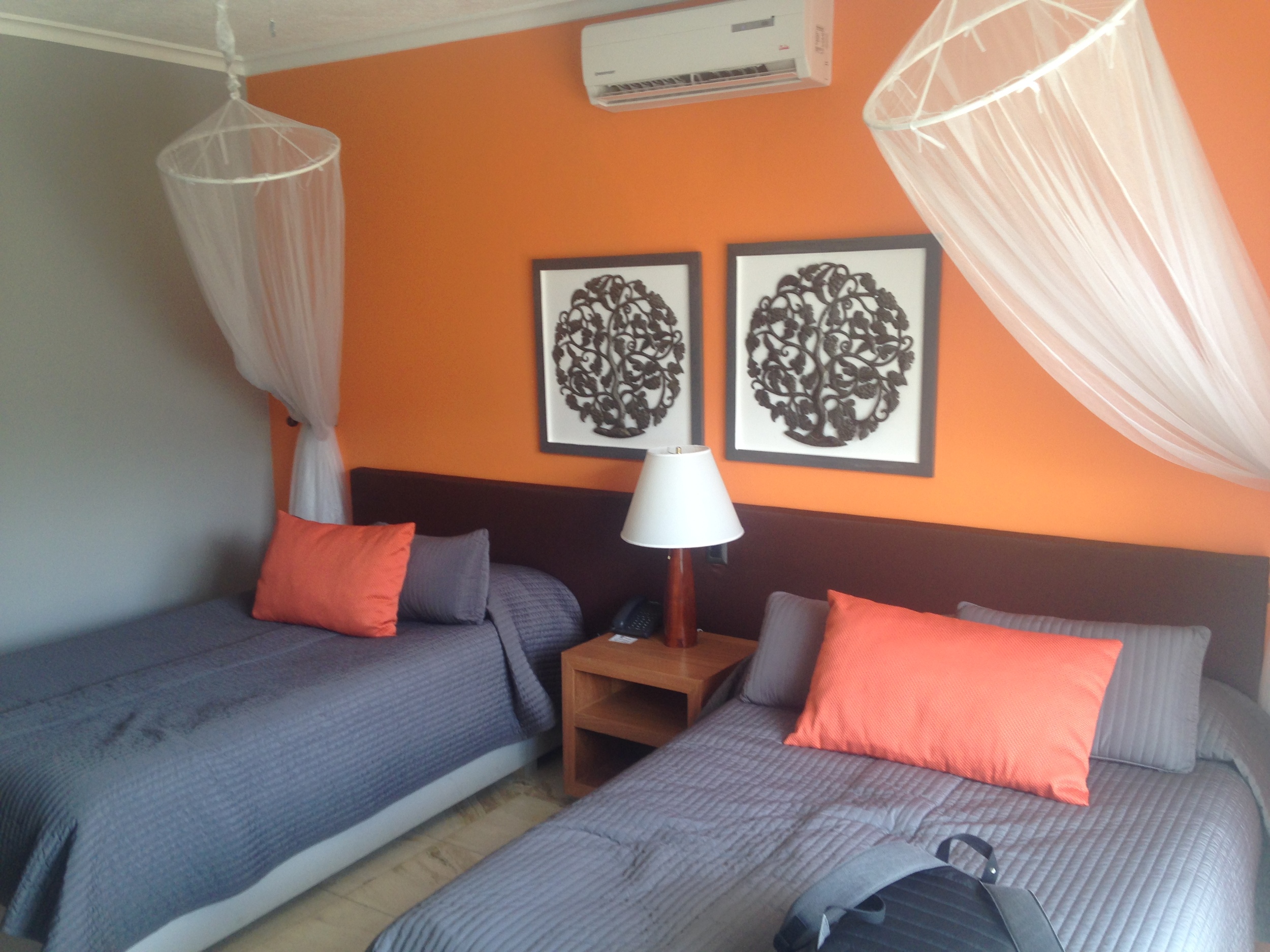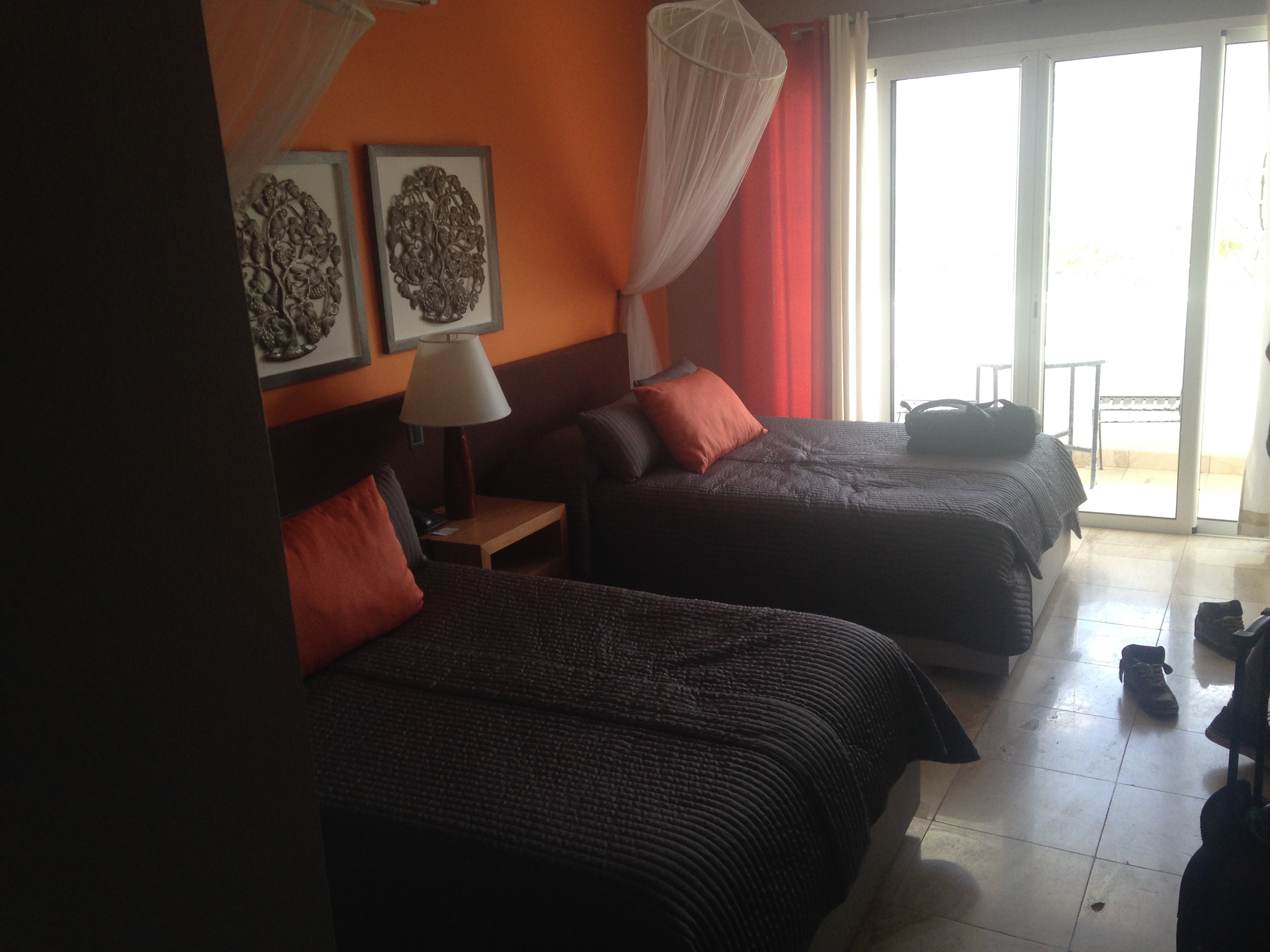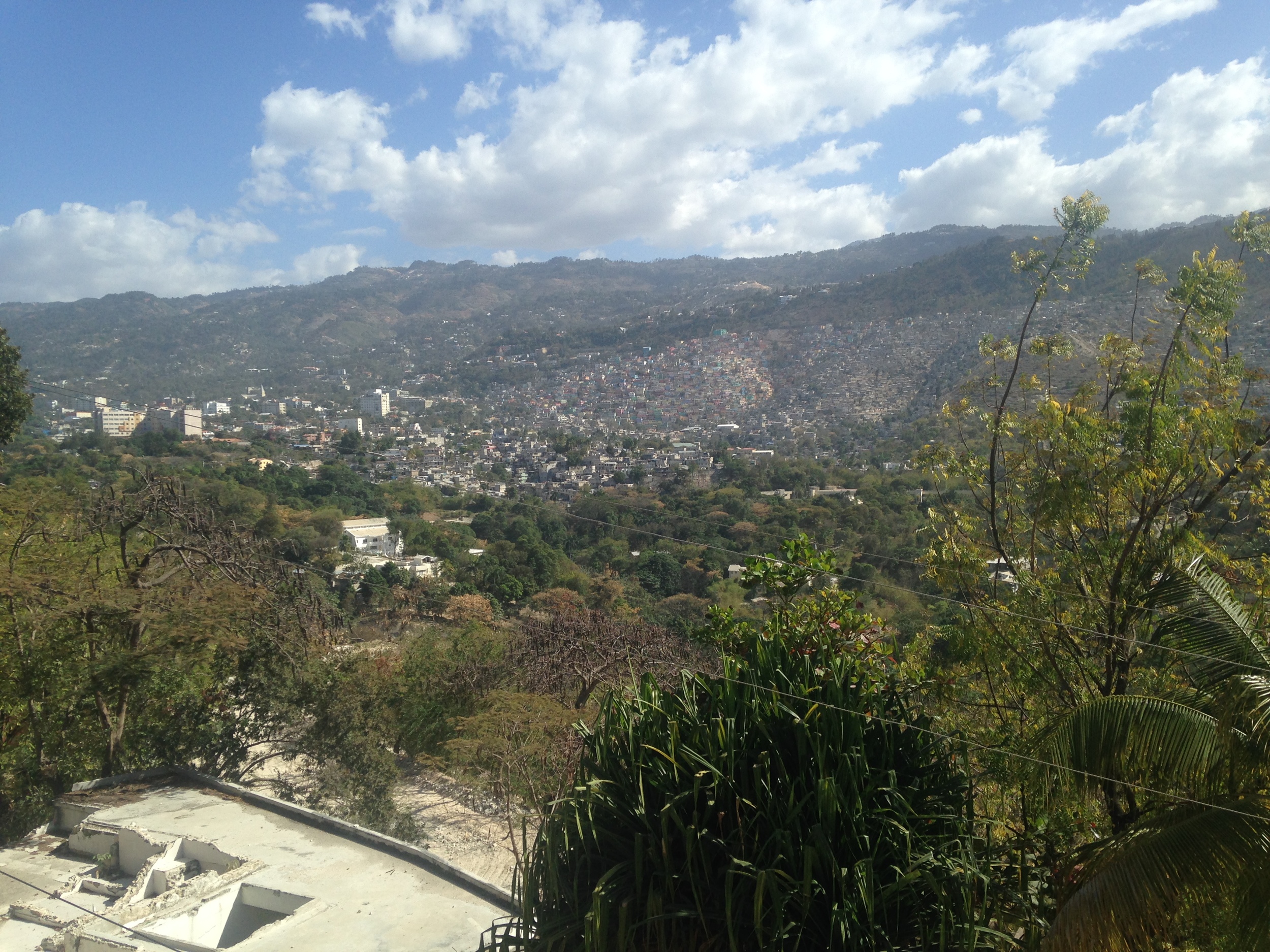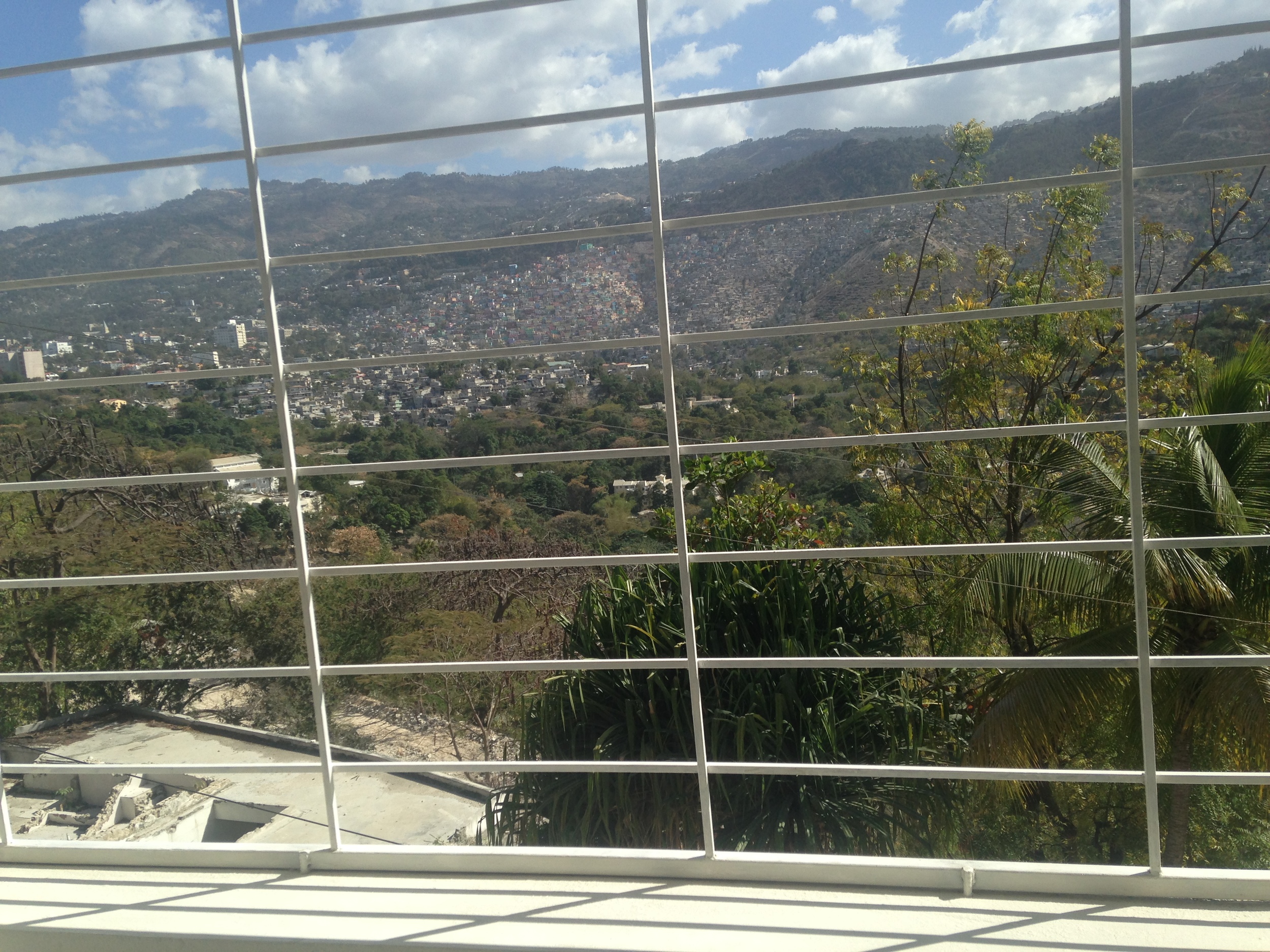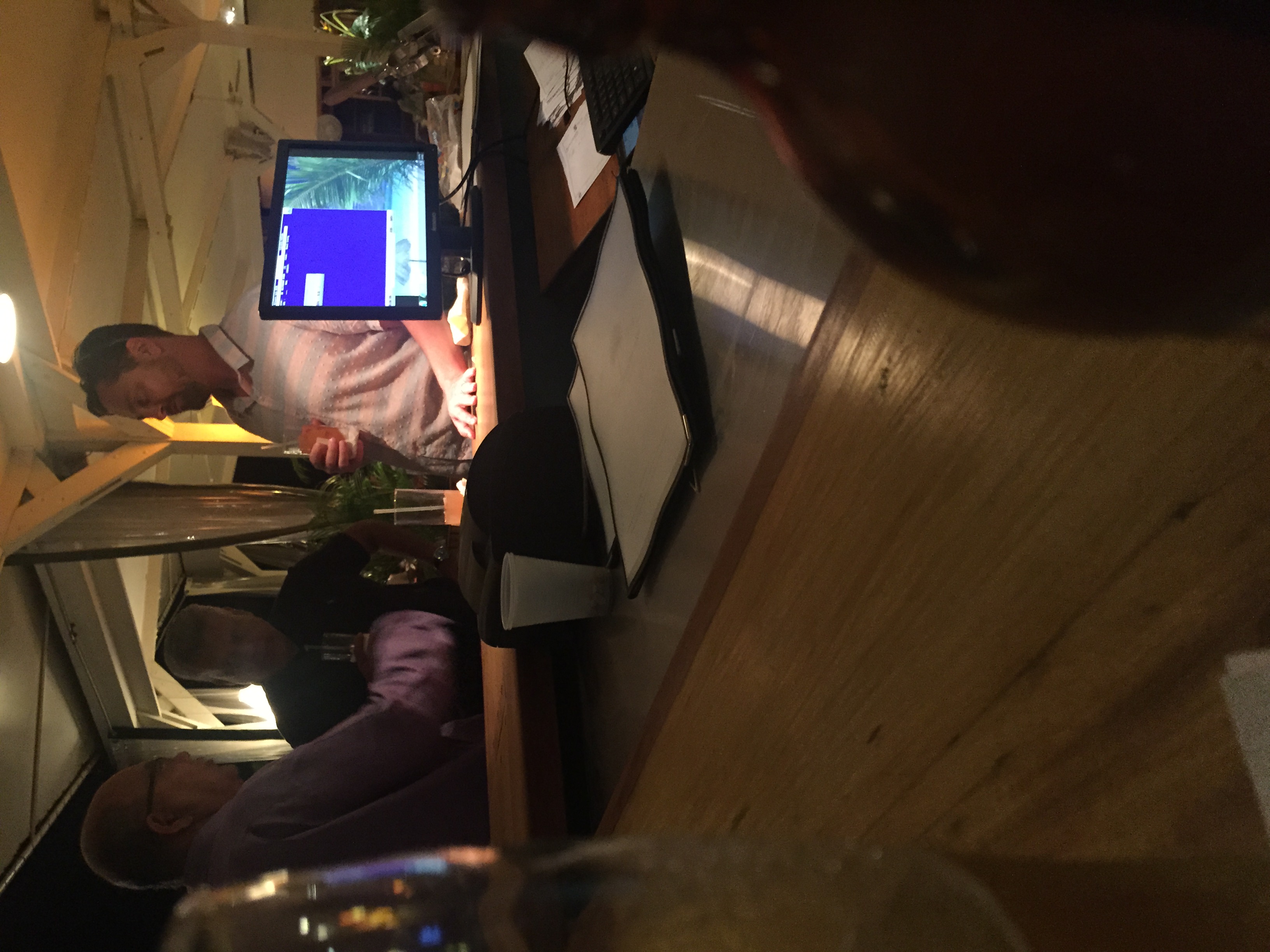The corridor outside of the hospital has also changed, Eddie says. Many who have come to the hospital have worked to keep the area sanitary and safe - litter off of the street means a better environment to buy and sell goods. It looked good. After I put my bags down in the Alumni House, a temporary residence hall for those visiting the hospital, we took to the corridor, making it only a couple of yards at a time before "Bonjour, Eddie!" rang out time and time again. Like my neighborhood in Pittsburgh, people know each other here. It isn't as fast paced as Petionville, with new residents coming in by the droves. This was a place where you genuinely ask how people and their families have been. Sak ap fet? komon ou ye? Kijan tout moun ou ye? we'd ask the young and old, who gave sideways glances and nods of their heads.
A newly painted art gallery stood behind a rock wall, the crowd in front of its lit up space welcomed us with smiles, as Eddie hugged dozens of young men who were painters, or gardeners, or who were just hanging around with the cool kids. I said hello, and thanked the gallery curator who gave me a cold Prestige. With a busy schedule, and many people to see, I gulped down the beer, realizing late that the bottle had to be returned in its original box in order to be refilled. I set it down on the road, empty, and Eddie's cousin Nico gave me a quick lesson in the power of bringing things back to where they originated. If the beer box wasn't full with empty bottles, the customer would be deprived of its full buy-back value. It was recycling at its best. For many years, the storefront had been abandoned, but now it thrived. HAS visitors are its most common supporter - a painting here, a metal piece there. The items much different than the pieces we handpicked and scanned during the trip to Croix des Bouquets, but still enticing US dollars to free themselves of their handler's wallets.
The Yale School of Forestry Student Group meets the Friends
The Hotel was bustling. A wide open sky in view between the roof overhang - spaces to see the blackest of skies with the deepest amount of shining white stars. We traveled to rural Haiti for many reasons, but a large piece was to visit with a five-year visitor, the Yale School of Forestry graduate student group, and to see the HTRIP staff and the trees. Now in its ninth year, many of the tree plots have become small forests, and we all wanted to get a glimpse of their celebrity. Happy Birthday, the student team (and two professors) yelled out as we finally met for a dinner of rice, beans and a sort of eggplant au-gratin. Program Manager Melissa Sanon is a friend of mine on Facebook and being that it was my day of birth, had read the familiar celebratory messages on my wall throughout the day. By the time I reached Deschapelles, and began greeting the Yale group, only a couple more hours remained in the day of birth, so I appreciated the salute as the ice was broken. Eddie and I sat at different tables for dinner - me sitting with three very cool students, ranging in experience and expertise. One went to college at age 14 years old. tried out medical school, and soon found her way to the Forestry Program to pursue a happiness that only a tree can provide. Another already held a degree in Veterinary medicine, and was now looking at the ways animals transfer disease to humans. The third tablemate was interested in composting - worm composting to be exact - and I outrightly said how cool it was, and how thankful I was to have not been on the tour during the afternoon. The food was delicious and the talking continued as we finished our plates, and Yale School of Forestry Professor, Gordon Geballe introduced the Friends.












































































